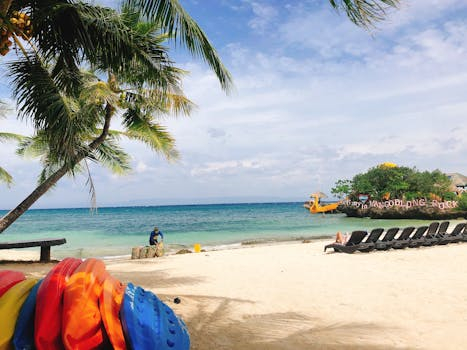Beyond the Beach: Sustainable Tourism’s Shift to Positive Impact.
Sustainable tourism has been gaining traction in recent years as travelers become more aware of the impact their vacations have on the environment and local communities. While many may associate sustainable tourism with beach resorts and eco-tours, the industry has begun to shift its focus to a more positive impact beyond the beach. This means implementing environmentally friendly practices and supporting the local economy in a more holistic way. Let’s explore how sustainable tourism is evolving and making a positive impact on destinations around the world.
The Evolution of Sustainable Tourism
For many years, sustainable tourism has been seen as an alternative to traditional mass tourism, with its focus on preserving the natural environment and promoting responsible travel. The concept first gained popularity in the 1980s, as people started to realize the negative impact of tourism on popular beach destinations.
Since then, sustainable tourism has evolved to encompass a wider range of practices, including responsible travel, community development, and conservation efforts. This shift has been driven by the growing awareness of the negative impacts of tourism, as well as the increasing demand from travelers for more responsible and meaningful travel experiences.
Going Beyond the Beach
While beaches are still a popular vacation spot, travelers are now looking for more authentic and sustainable experiences beyond the typical tourist attractions. This has led to a shift in the tourism industry, with a focus on promoting cultural immersion, supporting local communities, and preserving heritage sites.
Cultural Immersion
One of the key aspects of sustainable tourism is promoting cultural immersion. This means giving travelers the opportunity to learn about and participate in the local culture and traditions. This not only enriches the travel experience for tourists but also supports the local economy and helps to preserve cultural heritage.
Instead of staying in large beach resorts, sustainable tourism encourages travelers to choose smaller, locally-owned accommodations. This not only supports the local economy but also gives tourists a chance to interact with the locals and learn about their way of life.
Supporting Local Communities
In addition to cultural immersion, sustainable tourism also focuses on supporting local communities. This means promoting and using local products and services, creating job opportunities for locals, and investing in community development projects.
This has resulted in the growth of community-based tourism, where local communities are directly involved in and benefit from the tourism industry. This not only helps to alleviate poverty but also gives tourists a more authentic and immersive experience.
Preserving Heritage Sites
One of the biggest challenges of mass tourism is the impact on cultural and natural heritage sites. Sustainable tourism aims to address this issue by promoting responsible travel practices and investing in the preservation of these sites.
In recent years, many popular destinations have implemented measures to limit the number of tourists allowed at heritage sites, in order to mitigate damage and overcrowding. There has also been a shift towards sustainable tourism practices, such as using eco-friendly modes of transportation and promoting responsible waste management.
The Benefits of Sustainable Tourism
Sustainable tourism not only benefits the environment and local communities, but it also has several advantages for tourists. Here are some of the key benefits of choosing sustainable tourism:
Authentic and Meaningful Experiences
By going beyond the beach and immersing themselves in local cultures and communities, tourists can gain a deeper understanding and appreciation for the destinations they visit. This leads to more authentic and meaningful travel experiences.
Less Impact on the Environment
Sustainable tourism practices, such as using eco-friendly accommodations and transportation, minimize the negative impact on the environment. This allows travelers to enjoy their vacations while also having a positive impact on the environment.
Supporting the Local Economy
By supporting local businesses, sustainable tourism helps to boost the local economy and create job opportunities for locals. This benefits the entire community and ensures that tourism has a positive impact beyond just the beach.
Conclusion
Sustainable tourism’s shift to a more positive impact beyond the beach is a positive development for both travelers and destinations. By promoting cultural immersion, supporting local communities, and preserving heritage sites, sustainable tourism is not only helping to mitigate the negative impacts of mass tourism but also providing tourists with more meaningful and authentic experiences. As the industry continues to evolve, it is important for both tourists and businesses to embrace sustainable practices and ensure that our travels have a positive impact on the world around us.










